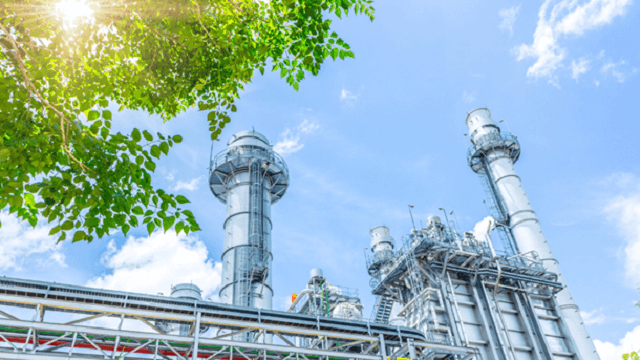Tracking the growth of sustainability in Canada’s agriculture processing plants
How are Canadian agriculture processing plants working towards more sustainable and profitable operations? We surveyed those working in Canada’s agriculture processing plants and learned about their goals, challenges and processes. Learn more about respondents' sustainability strategies and how Alfa Laval’s equipment and industry expertise can help maximize the sustainability of your food processing plant.
DATE 2024-07-16
The agricultural processing industry generates about $143.8 billion (around 7.0%) of Canada's gross domestic product (GDP). It’s also one of the sectors that the government of Canada has identified as having one of the highest economic growth potentials in the country. As such, The Sustainable Agriculture Strategy (SAS) has been developed to support those working in this industry.
Recently, Alfa Laval surveyed those working in Canada’s agriculture processing plants and learned about their sustainability goals and programs. We asked how they optimize processes, what they are doing to address wastewater or reclaim water, how they reduce energy usage, the challenges to becoming more sustainable, and other related topics.
Mapping the green transition
How are Canadian industries investing and working towards sustainability goals? Find out in our eBook "Mapping the green transition: Benchmarking progress in Canada’s manufacturing and industrial sectors."

Who Did We Survey?
The majority of respondents working in agriculture processing were located in Ontario (39%), followed by Quebec (25%). It is the most common industry of respondents in Saskatchewan and the second-most common in Manitoba. The two most common roles for respondents from the agriculture processing industry were Maintenance Manager and Plant General Manager.
Sustainability Practices: A Breakdown
Of those respondents working at an agriculture processing plant, 96% reported that their company is actively working towards sustainability goals, with 67% focused on optimizing processes and 59% are investing in new equipment. Process optimization strategies include effective channelizing and process organization (39%), overall efficiency tactics (28%) and leveraging new technologies (22%).

Strategies to Increase Sustainability
While different approaches are used to achieve sustainability goals, 59% of respondents said their company is focused on energy efficiency improvements and/or waste reduction and recycling programs. 48% are implementing water conservation initiatives and 30% are focusing on using renewable energy sources.
Finding ways to reduce energy usage is a top priority for agriculture processing plants, with 52% of respondents saying they are trying to reduce electrical energy consumption. 48% are switching to renewable or less carbon-intensive energy sources, and 41% are reclaiming waste thermal energy as part of their sustainability goals.
How else are respondents optimizing their processes?
Energy reducing programs
- 52% are reducing electrical energy consumption
- 48% are switching to renewable or less carbon-intensive energy sources
- 44% are reducing energy thermal consumption
- 41% are reclaiming waste thermal energy
Waste energy recovery
- 68% are recovering waste energy
- 29% are not recovering waste energy
- 4% aren’t sure how they’re recovering waste energy
Waste energy reuse
- 79% are reusing waste energy
- 18% are not reusing waste energy
- 4% aren’t sure how they’re reusing waste energy
Wastewater reclamation
- 59% are focusing on water reduction strategies
- 59% are focusing on water recovery strategies
- 33% are focused on water reclamation for other parts of their business processes
- 11% said wastewater reclamation isn’t part of their sustainability goals
Looking to increase the energy efficiency of your agriculture processing systems?
With Alfa Laval’s cutting edge heat transfer technology, you can harness the power and reliability of our gasketed, semi-welded, hygienic, and welded plate heat exchangers.
Challenges and Barriers to Sustainability Goals
The biggest challenge that our respondents identified when trying to achieve sustainability goals is financial constraints (57%), followed by technological limitations (50%), a lack of awareness or understanding of sustainable practices (36%), and regulatory compliance issues (32%).
There are many ways agriculture processing plants can invest in new technologies to increase their sustainability efforts and increase profitability.
At Alfa Laval, we help agriculture processing plants to optimize their processes’ energy use, enable improved management of their waste and water streams, and help reduce, reuse, and recycle waste through our expertise in:
- Clean Energy
Alfa Laval helps our customers transition to cleaner energy with a wide range of advanced heat transfer and separation technologies including clean hydrogen, fuel cells, Power-to-X, biofuels, carbon capture, concentrated solar power and more. - Circular Economy
Thanks to our unique understanding of separation and thermal technologies, Alfa Laval has led the way in the development of new solutions to advance the circular economy, helping optimize production processes for reliability and sustainability. - Energy Efficiency
At Alfa Laval, we have spent decades developing plate heat exchanger technologies that help food processing plants optimize energy use in their processes, and our unique thermal solutions make it possible to save dramatic amounts of energy. - Potato Starch Production
Regardless of how you produce your potato starch, Alfa Laval supplies a complete range of products and systems for use in producing potato starch. These all feature high reliability, low operating costs and excellent overall sustainability performance. - Sugar Refining
Our advanced solutions can increase quality, energy efficiency, and overall profitability for systems that heat sugar liquids, heat and cool syrups, molasses and other liquids with high viscosity. - Wheat Starch Production
Alfa Laval processes and products for wheat starch production provide low water and energy consumption, easy control and high yield. Our specialized equipment lets you boost performance and minimize operating costs without compromising on quality or reliability. - Seed Oil Processing
Alfa Laval’s canola and rapeseed processing systems use thermal energy to reduce operating costs and improve the environmental profile of any seed oil operation by decreasing direct emissions and indirect CO2-equivalents. - Bioethanol Production
Alfa Laval’s heat transfer technology boosts efficiency and provides a rapid ROI by maximizing yield, uptime, and product quality while decreasing overall energy consumption.
Grow Your Plant Sustainably with Alfa Laval
At Alfa Laval, we’re accelerating the transition to more efficient, cleaner energy solutions and moving the circular economy forward. Our deep industry knowledge of agriculture processing plants enables us to optimize customer processes, overcome the toughest challenges, and continue making the world more sustainable.
